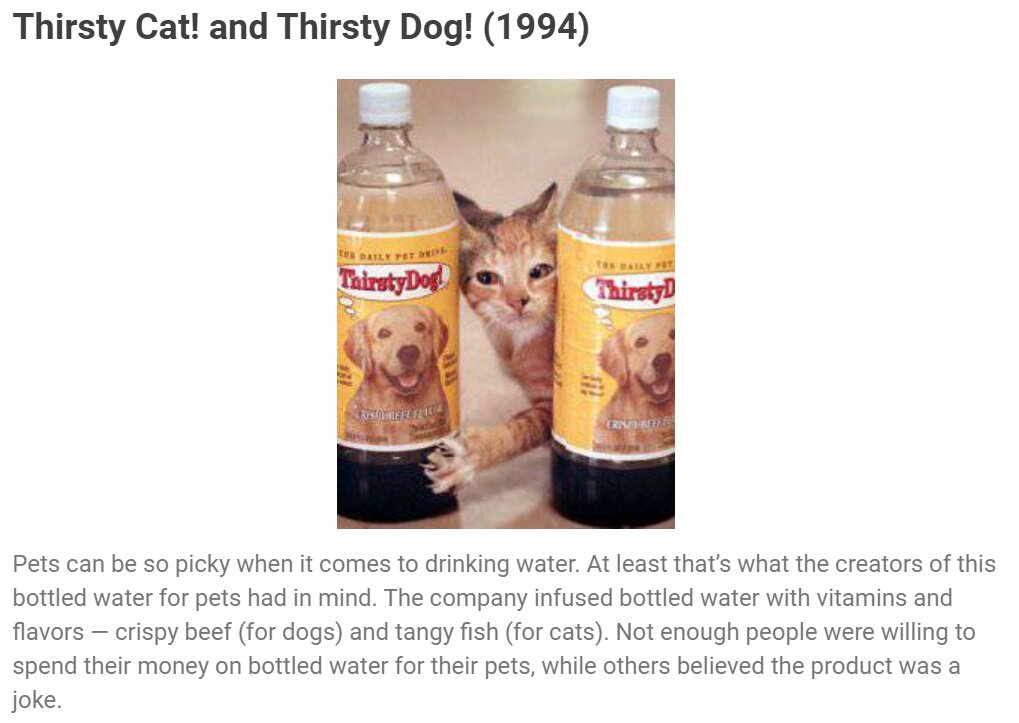(We originally posted this in 2021. You can read more of our original ideas in our archive.)
Problem: Many startups fail because they’re too early.
Solution: This business would create a business of all startup failures on record. Today, the closest think to this is large lists about massive startup failures or one-off lists like Y-Combinator's Inactive Companies Directory. In no particular order, here are 6 defunct startups and products that could be rebuilt into billion-dollar greatness today:
If you like this as a thought experiment, feel free to take a peek at this list of 353 Startup Failures or 160 product failures.
Ultimately, the list of tried and failed startups and companies is even larger than the list of successful startups. This business would capitalize on that rich resource to create an accelerator with the purpose of rebuilding dead startups: it would be a Zombie Fund, utilizing the skills, talents, and resources of a small group of LPs and GPs to rediscover the world’s lost innovations.
The business would take a similar format to Atomic Labs’ business model. Known as Silicon Valley’s “Pixar,” Atomic specializes in creating startup success through a tried and true recipe and knowledge base.
If all goes according to Atomic's plan, Hims will prove to be just one in a string of startup successes. In less than five years, Atomic has launched 10 companies including Hims out of a $20 million first fund, enjoying one exit (TalkIQ) and returning its cash to investors like Marc Andreessen and Peter Thiel in less than five years—good for an internal rate of return of more than 70% so far.
…
“It’s something I’ve been thinking about since I was 12,” Abraham says. “The intersection of big opportunities and the right people to work on them—in our view it’s pretty small. It’s driven by randomness, almost like Powerball.” To Abraham, startup cofounders meeting in college or while working at a big tech employer isn’t serendipitous or romantic—it’s wasteful. People with the right talent for an idea may never meet. Or they could waste years on the wrong one. “You can take someone who is extraordinarily effective at execution, and they’ll bang their head on the wall for the rest of their lives,” Abraham says. “We all fundamentally believe company creation is broken,” says Ng.
Atomic looks to fix what it believes is the biggest pain point in that process in a novel way: matching founders to an idea after it’s already hatched. From its first days, Atomic’s partners have developed a database of potential startup ideas, adding to it as they talk to entrepreneurs and investors and study market trends. Instead of holding partner meetings to discuss investments, Atomic’s three partners meet up to brainstorm about promising ideas from that list, now swelled to more than 500, on a white board. The ones that stand out are flagged for testing that can run weeks or months, while Atomic looks internally and through its network of contacts for potential CEOs to take over the business if it demonstrates traction.
This model is one that I think will continue to gain popularity throughout the 2020s. Rather than just investing in startups that have already been created, I think venture capitalists (who have seen what it takes to succeed) will become operator-investors or, at least, try to have more of a say in the operational inception of a business.
Monetization: Profits and sales from these rebuilt companies.
Contributed by: Michael Bervell (Billion Dollar Startup Ideas)






